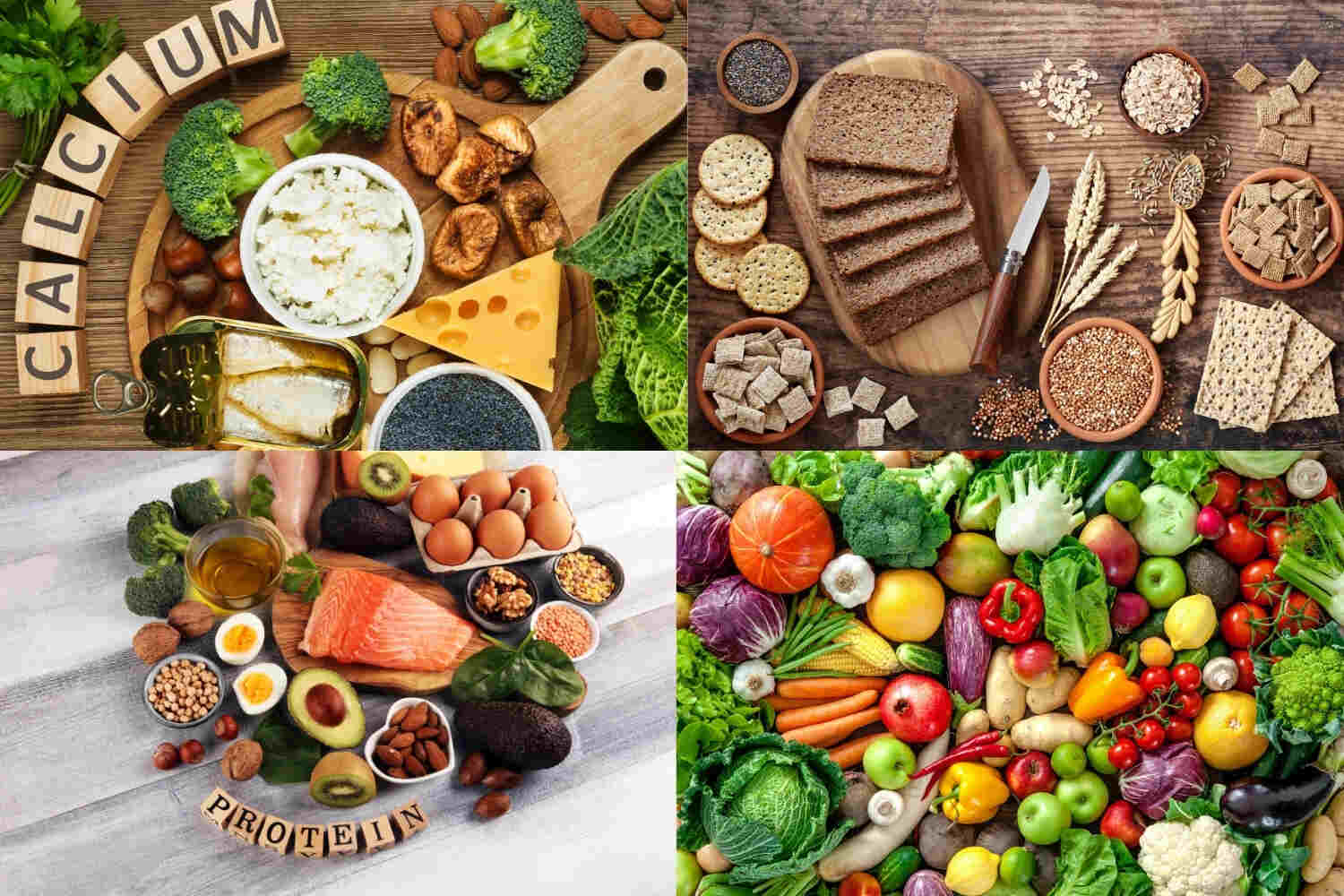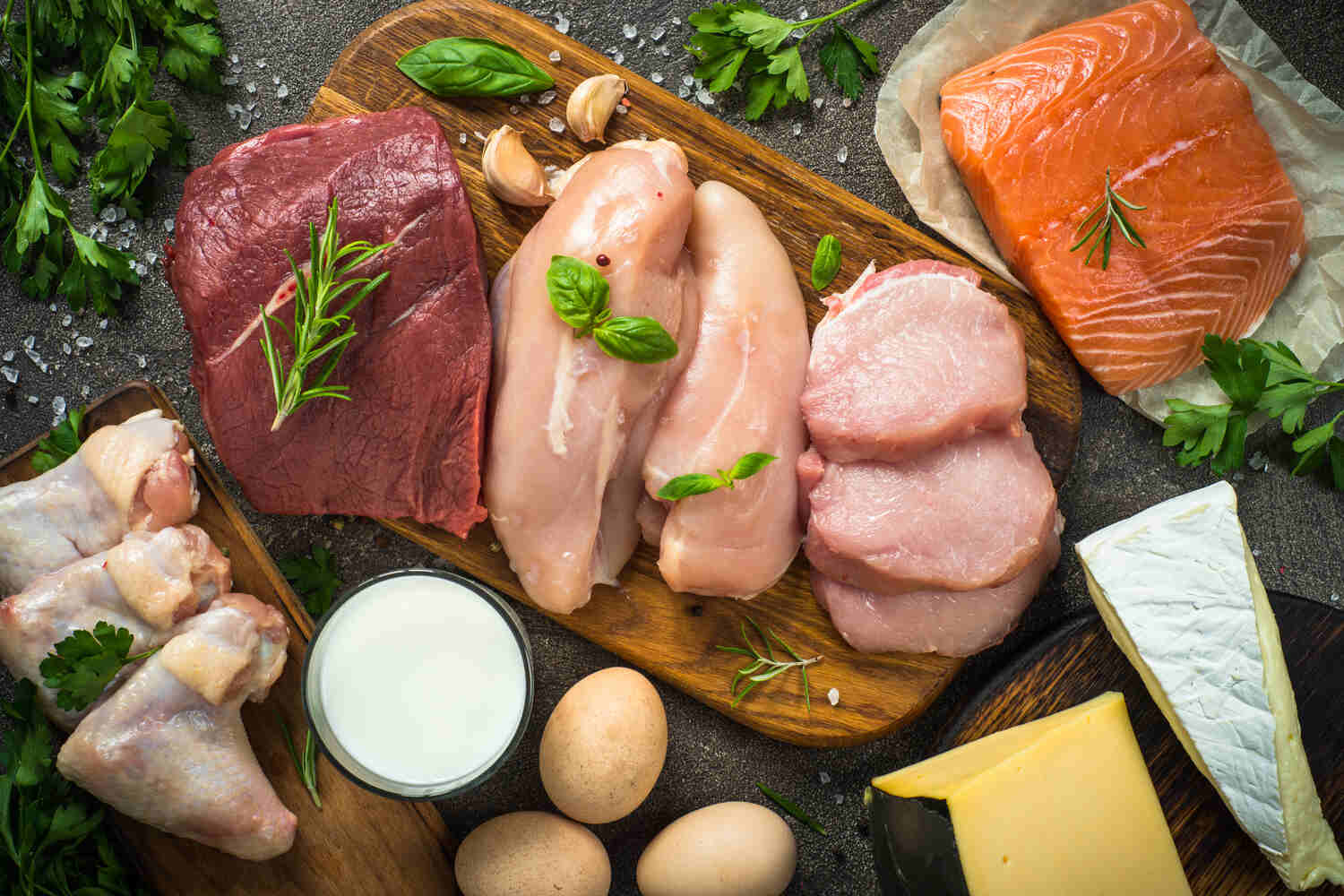 Pregnancy is a crucial time demanding good nourishment and emotional wellness. It is important to check the prenatal complications if any and its effect on offspring. Regardless of month or trimester, every aspect is important and can be modified as a risk factor. One such situation comes when deciding foods to include and avoid during 5th month of pregnancy
Pregnancy is a crucial time demanding good nourishment and emotional wellness. It is important to check the prenatal complications if any and its effect on offspring. Regardless of month or trimester, every aspect is important and can be modified as a risk factor. One such situation comes when deciding foods to include and avoid during 5th month of pregnancy
Once you reach the fifth month, you are halfway through the second trimester. It is during this month you will have your anomaly scan.. Most moms display their pregnancy bump and the skin is radiant. Hormonal changes are common during this month. This phase is the best time for dental treatment whereas the fetal organs are almost developed but still yet to be active.
In This Article –
- The Fifth Month Of Pregnancy
- Foods To Include In Fifth Month Pregnancy Diet
- Foods To Avoid In The Fifth Month Pregnancy Diet
- FAQ’s
The Fifth Month Of Pregnancy
During this 5th Month, several changes occur in your body. The fetus continues to grow and develop inside and you can feel the baby movements more prominently. With bump size increasing,lower esophageal sphincter relaxes raising issues like Heartburn, fatigue, constipation, bloating, pressure on your back, bleeding gums and muscle strain(1). In fact, changes in gums and skin like Linea Niagra) (2), are common during this period. Increased appetite, food cravings and frequency of urination are also typical symptoms. Varicose veins (3) can develop, especially in overweight ones. Also breast changes like darkening nipples, may occur during the fifth month of pregnancy.
Foods To Include In Fifth Month Pregnancy Diet
 There are some basic principles that you have to follow amid your fifth month of pregnancy to guarantee the well being of you and your baby. You need 347 extra calories per day during this month. Thus, you should acquire from protein and calcium sources rather than from simple carbohydrates, sugar, and fatty additives.
There are some basic principles that you have to follow amid your fifth month of pregnancy to guarantee the well being of you and your baby. You need 347 extra calories per day during this month. Thus, you should acquire from protein and calcium sources rather than from simple carbohydrates, sugar, and fatty additives.
Eat more frequently to subside your increased appetite during this month. Take a different variety of food each time. Eat a hand full of dried fruits and nuts once, next time have a bowl of fruits or a vegetable salad and so on. To help you more, here we are giving you an idea of what to be incorporated into your eating routine amid the fifth month of pregnancy.
1. Protein Rich Food
Protein rich foods are counted as the best fifth month pregnancy food. The amino acids in proteins are the building blocks of the body. Therefore, protein rich foods are crucial to guarantee the baby’s physical development (which is quickly happening during this month) is on the right path. Muscles, skin, and organs need protein to develop and sustain themselves.
- Pulses, chicken, cereals, nuts, seeds, and eggs are loaded with proteins and should be included in the daily menu
- Steamed chickpea, cottage cheese (paneer), soya chunks, and tofu are rich in protein.
2. Consume Whole Grain Foods
Whole grains consist of all three parts of the grain – endosperm, bran, and germ. Whole grain foods are the richest source of iron, magnesium, vitamin B complex, vitamin E, etc. Select your favorite food grain product from the whole grain food range of Ragi, wheat, corn, oat, and rice.
- Pasta, breakfast cereals, bread, crackers, muffins, tortillas, and what not! There are so many options now-a-days, to select the whole grain food from, which satisfy your need for the breakfast, midday snack, evening snack, and even desserts
3. Calcium Rich Food
Throughout the fifth month of pregnancy, you should begin incorporating a greater amount of calcium in your daily menu to help your infant develop strong teeth and skeletal system.
- Include low-fat milk, milk products like cheese, paneer, yogurt, etc. in your daily menu
- Dried fig, dried dates, prunes, mulberries, and kiwi are fruits, which have a considerable amount of calcium
4. Food with High Fiber Content
It is important to ensure sufficient quantities of fiber rich food are included in your daily menu to reduce the chances of constipation.
- Fruits, vegetables, barley, oats, nuts, and wheat are rich in fiber content
5. Increase the Intake of Fluid
Intake of fluid should be increased during the fifth month of pregnancy. Always remember to stay well hydrated. Drinking plenty of water will help to keep constipation at bay. Drink 6 to 8 glasses of water day by day. Drinking water likewise helps in preventing UTI, which is very common among the expecting mothers. Drinking fresh juice and water helps in detoxifying the body of the pregnant woman. Have plenty of sugarcane and mango juices, which contain healthy carbohydrates and lots of dietary fiber. Moreover, mango is extremely rich in iron
6. Eat Lots of Salads
Making it a habit of having a bowl of mixed greens using fresh vegetables like cabbage, romaine lettuce, carrots, crisp tomatoes, tender rocket leaves, and beetroot will help to incorporate essential minerals and fiber in your eating routine. Note that, it is not recommended to use the salad dressing and pickled vegetables like capers, radish, and olives since they are high in sodium content
7. Consume Different Varieties of Fruits
Fruits are packed with vitamins and minerals and they taste heavenly as well. You can never get tired with consuming fruits, as you never run out of options. There is a wide range of fruits, like apples, avocados, grapes, banana, pears, litchi, cantaloupe, kiwis, oranges, berries, and currants, to choose from. Why not mix some fruits into yogurt and fresh cream for a desert
8. Include lots of Greens
Include lots of green to your everyday menu. Fenugreek leaves, palak, broccoli, turnip leaves, romaine lettuce, etc. are loaded with minerals and vitamins that are essential during the fifth month of pregnancy
As always, avoiding junk food, under-cooked fish and meat and other unhealthy food choices is a must during the gestation period.
Foods To Avoid In The Fifth Month Pregnancy Diet
Now that you have entered the 5th month, consuming a variety of food is crucial for you and your growing baby. But you also need to stay away or limit certain foods as they don’t fit in this journey. It is natural to develop cravings, but thankfully there are some options to keep away or restrict during your pregnancy:
Carbonated Drinks
 Carbonated drinks or soda – based beverages are fine to have only once in a blue moon or rarely. Usually these drinks are high in calories, sugar or artificial sweeteners and caffeine. Excess intake of these drinks causes discomfort, bloating (4) and decreases birth weight (5). The sweeteners in carbonated drinks is a matter of concern. It decreases insulin sensitivity (6) and brings periodontal problems (7). So, if you are one of them craving for fizzy flavored bubbles,swap with some fresh fruit juices with sparkling water or stick to fresh lime water.
Carbonated drinks or soda – based beverages are fine to have only once in a blue moon or rarely. Usually these drinks are high in calories, sugar or artificial sweeteners and caffeine. Excess intake of these drinks causes discomfort, bloating (4) and decreases birth weight (5). The sweeteners in carbonated drinks is a matter of concern. It decreases insulin sensitivity (6) and brings periodontal problems (7). So, if you are one of them craving for fizzy flavored bubbles,swap with some fresh fruit juices with sparkling water or stick to fresh lime water.
Certain Fruits and Vegetables
There is no doubt that fruits and vegetables are rich in dietary fiber, antioxidants and carotenoids which decreases oxidative stress and related complications. However, there are certain fruits and vegetables which shouldnt eaten in excess. Sources such as pineapples (8) and papayas, cabbage, lettuce, and the eggplant are to be consumed in moderation too as they are notorious enough to cause diarrhea, stomach discomfort and even uterine contractions.
Caffeine
 Moderate consumption of coffee or tea during the second trimester of pregnancy is considered safe. Taking in excess increases the infertility cases, birth defects, miscarriage, still births and even cot death (9). Too much caffeine interferes with babies’ sleep cycle (10). So it is best to restrict as much as you can altogether, but if you are one of those who really cannot go without it, reduce the quantity to two cups per day or grab a small chocolate bar (11) with less sugar content.
Moderate consumption of coffee or tea during the second trimester of pregnancy is considered safe. Taking in excess increases the infertility cases, birth defects, miscarriage, still births and even cot death (9). Too much caffeine interferes with babies’ sleep cycle (10). So it is best to restrict as much as you can altogether, but if you are one of those who really cannot go without it, reduce the quantity to two cups per day or grab a small chocolate bar (11) with less sugar content.
Smoked and Raw Seafood
Love to eat Crab and Bacons? Are you someone fond of Sushi? Then it is time to halt for a while. The Polycyclic Aromatic Hydrocarbons (PAH) (12) and harmful bacteria (13) present in smoked meat and raw seafood causes listeriosis (14), one of frequent causes of stillbirths, miscarriages or illnesses in newborns. They hinder the development of the fetus. The preservatives- nitrates and nitrites causes food poisoning or even uterine contractions too early (15).
Fish Containing Mercury
Fishes no doubt are good sources of Omega-3 fatty acids, Proteins, Vitamins and Selenium that helps in maternal and fetal nourishment (16). Mercury found in the ocean, streams and lakes is a great concern affecting mothers and fetuses. When eaten, mercury gets converted into methylmercury inside the human body, a neurotoxin that crosses the blood-brain barrier causing brain damage and developmental issues (17). As per FDA and WHO, shark, swordfish, king mackerel, tilefish from the Gulf of Mexico, orange roughy, marlin, and bigeye tuna are removed from expectants’ diet due to high mercury levels (18).
Raw or Undercooked Eggs and Meat
 Eggs (19) and meat play a huge part of your diet throughout. They are rich in Retinol and Vitamin B12 which significantly improves maternal plasma and prevents birth defects. Do get advice from your experts and ensure eggs are well-pasteurized and meat is properly cooked if you are planning to eat. Many times consumption of eggs and meat is prohibited during pregnancy due to high risk of transmitting bacterial or parasitic diseases along with neurotoxicity (20).
Eggs (19) and meat play a huge part of your diet throughout. They are rich in Retinol and Vitamin B12 which significantly improves maternal plasma and prevents birth defects. Do get advice from your experts and ensure eggs are well-pasteurized and meat is properly cooked if you are planning to eat. Many times consumption of eggs and meat is prohibited during pregnancy due to high risk of transmitting bacterial or parasitic diseases along with neurotoxicity (20).
Herbal Teas and Supplements
Herbal teas and supplements are generally recommended within limits. However, there are certain chemical compounds and teas like Chamomile tea which show potent risks to both the mother and the child. Hence, it is advisable to consume herbal teas and supplements in moderation too after consulting with a healthcare professional. If you are planning for green tea, it is recommended to take 1-2 cups per day. For added safety, consult with your health experts before incorporating it into your daily diet.
Foods taken by expectants will have a direct impact on herself and her baby. The health and safety of both is a matter of concern which cannot be denied. While some foods are pretty acceptable, there are certain foods to be denied completely during the 5th month of pregnancy. Always be cautious and understand of what you eat
FAQ’s
1. What Should I Be Eating At 5 Months Pregnant?
A healthy balanced diet is necessary to fulfill the requirements of both. Your meals should be simple, nutritious and tasty. Make sure to consume seasonal fruits and vegetables to enjoy phytonutrients and fiber. Also remember to indulge in moderation.
2. Which Fruit Is Best For The 5th Month Of Pregnancy?
Bananas should be on the priority since it is safe for consumption throughout. They are rich in carbohydrates, sodium, potassium and phosphorus which will boost your energy loss and reduce risk of anemia, preeclampsia and hypertension
3. What Should I Do In My 5th Month Of Pregnancy?
By 5th month, hunger pangs are commonly seen. You should look for healthy options to satisfy hunger and nourishment. Find comfortable ways for sleep to maintain circadian cycle. Look for comfortable maternity wear and shoes that are helpful throughout.
4. Is There Any Risk In 5th Month Pregnancy?
During this 5th month babies start growing better. Expectants may encounter symptoms like protruding belly or breathing problems. Women with high-risk pregnancy are recommended cordocentesis- a test to detect chromosomal abnormalities by monitoring fetal well-being.
References –
- The Main Changes in Pregnancy—Therapeutic Approach to Musculoskeletal Pain
[https://www.ncbi.nlm.nih.gov/pmc/articles/PMC9414568/] - Linea Nigra: Case Report of a Woman With a Pregnancy-Associated Linear Streak of Cutaneous Hyperpigmentation on Her Abdomen From the Umbilicus to the Pubic Symphysis
[https://www.ncbi.nlm.nih.gov/pmc/articles/PMC10701200/] - Interventions for varicose veins and leg oedema in pregnancy [https://www.cochranelibrary.com/cdsr/doi/10.1002/14651858.CD001066.pub3/full]
- Carbonated beverages and gastrointestinal system: between myth and reality
[https://pubmed.ncbi.nlm.nih.gov/19502016/] - Is consumption of sugar‐sweetened soft drinks during pregnancy associated with birth weight?
[https://www.ncbi.nlm.nih.gov/pmc/articles/PMC5638078] - Cumulative soft drink consumption is associated with insulin resistance in Mexican adults
[https://www.sciencedirect.com/science/article/pii/S0002916522008395] - Periodontal disease in pregnancy and adverse pregnancy outcomes: Progress in related mechanisms and management strategies
[https://www.ncbi.nlm.nih.gov/pmc/articles/PMC9640773] - Dangerous Foods and Herbs in Pregnancy-3 Fruits Continued of Dangerous Foods and Herbs in Pregnancy-2 Vegetables
[https://www.researchgate.net/publication/330243258] - Impacts of Caffeine during Pregnancy
[https://www.ncbi.nlm.nih.gov/pmc/articles/PMC7035149/] - Maternal Caffeine Consumption and Infant Nighttime Waking: Prospective Cohort Study
[https://www.ncbi.nlm.nih.gov/pmc/articles/PMC3566755/] - Maternal and fetal effects of chocolate consumption during pregnancy: a systematic review
[https://www.tandfonline.com/doi/abs/10.1080/14767058.2018.1449200] - Prenatal exposure to polycyclic aromatic hydrocarbons could increase the risk of low birth weight by affecting the DNA methylation states in a Chinese cohort
[https://pubmed.ncbi.nlm.nih.gov/34794034/] - Pathogenic Infections during Pregnancy and the Consequences for Fetal Brain Development
[https://www.ncbi.nlm.nih.gov/pmc/articles/PMC8877441/] - Listeriosis during pregnancy: a retrospective cohort study
[https://bmcpregnancychildbirth.biomedcentral.com/articles/10.1186/s12884-022-04613-2] - Exposure to Phosphates and Nitrates through Meat Products: Estimation of the Potential Risk to Pregnant Women
[https://www.ncbi.nlm.nih.gov/pmc/articles/PMC10305619/] - Fish Consumption During Pregnancy
[https://www.ncbi.nlm.nih.gov/pmc/articles/PMC7346675/] - Mercury Contamination in Fish and Its Effects on the Health of Pregnant Women and Their Fetuses, and Guidance for Fish Consumption—A Narrative Review
[https://www.mdpi.com/1660-4601/19/23/15929] - Mercury in Fish: History, Sources, Pathways, Effects, and Indicator Usage
[https://www.researchgate.net/publication/272563841_] - The potential of a simple egg to improve maternal and child nutrition
[https://www.ncbi.nlm.nih.gov/pmc/articles/PMC6865885/] - Eating Raw, Undercooked, or Cold Meats and Seafood
[https://www.ncbi.nlm.nih.gov/books/NBK582930/]

